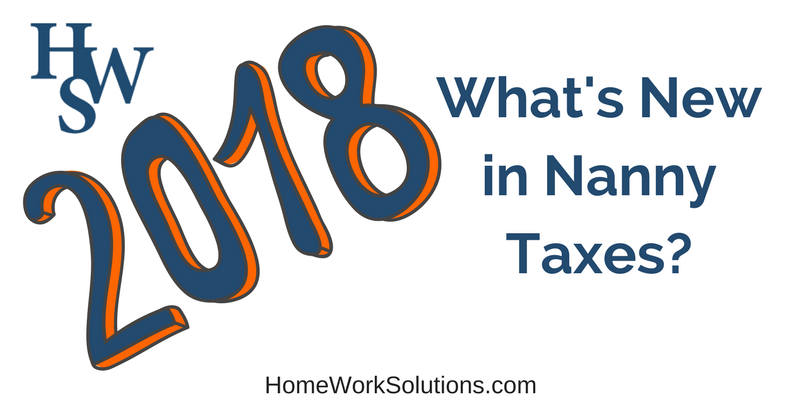
Every year there are a host of changes to labor law and reimbursement rates that impact nanny household payroll. Below please find a quick overview of the significant changes that go into effect for nanny taxes 2018.
Federal Nanny Tax Threshold: The wage threshold that triggers a FEDERAL nanny tax obligation has been adjusted to $2100 for 2018. This threshold is on a per employee basis. The Household Employer is obligated for all Federal payroll taxes for any employee they paid $2000 or more in 2017. Note that at the state level significantly lower thresholds are in place.
Paid Sick Leave: Many cities and states have mandatory paid sick leave laws that became effective in 2017 or begin in 2018. Large players include New York City, San Francisco and Montgomery County MD.
NY Paid Family Leave: Effective 1/1/2018 all NYS employers must provide eligible employees paid family leave. The pay during family leave is paid via an insurance policy that is required through the NYS Insurance Fund.
W-2 Reporting of Employee Healthcare Reimbursements: Any employer who provides tax free reimbursement of their household employee's healthcare expenses is required to report that reimbursement on the employee's 2017 W-2 Form.
Tax Free Healthcare Reimbursement Rules Changed: While the CURES act passed in December 2016 modifying healthcare reimbursement rules effective January 1, 2017, IRS guidance lagged by many months. LEARN MORE
Mileage Reimbursement Rate: The federal mileage reimbursement rate for 2018 is 54.5 cents per mile. This is the rate per mile that most household employers use for the reimbursement to the employee for work related travel in their personal vehicle. LEARN MORE
Minimum Wage Increases: Effective January 1, 2018, 17 states and many cities will have minimum wage increases.
Miscalssification: This is the practice of classifying a worker who should be an employee as an independent contractor to avoid the expense of payroll taxes and workers' compensation insurance. Household workers such as nannies, housekeepers, and senior caregivers paid directly by the family are all employees. At least 30 states have partnered with the federal government to target worker misclassification, with Virginia as the most recent state to enter into an agreement with the U.S. Department of Labor ("DOL") to target misclassification. Effective October 1, 2016 Maryland employers are now subject to significantly stiffer penalties for misclassification under its Recovery of Benefits and Penalties for Fraud Act. In addition to penalties and interest owed on unpaid unemployment taxes, Maryland employers will be subject to a civil penalty of up to $5,000 per employee for misclassification. Even more significantly, when the Maryland Department of Labor, Licensing and Regulation ("DLLR") finds instances of worker misclassification, they will notify the Workers’ Compensation Commission, the Insurance Administration, the MD Comptroller and the Internal Revenue Service.
